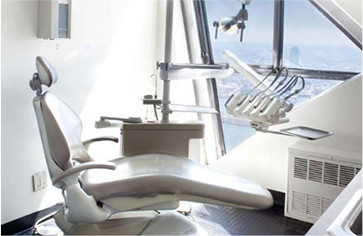If you are looking for a way to improve your smile without breaking the bank, dental bonding is one of the most affordable cosmetic dental procedures available. Whether you're dealing with chipped, discolored, or slightly misaligned teeth, composite bonding offers a quick and effective solution. For residents of New York City, especially those in Manhattan, finding smile studio NYC options is possible if you know where to look.
What Is Composite Bonding?
Composite bonding involves applying a tooth-colored resin to your natural teeth to enhance their appearance. This resin is molded, shaped, and polished to match your surrounding teeth, making it a versatile and less invasive alternative to veneers or crowns. Dental bonding is commonly used to repair chips, close gaps, reshape teeth, or cover discoloration.
Why Choose Dental Bonding NYC?
People in NYC choose dental bonding for a variety of good reasons. It is fast, works well and is much more affordable than many similar cosmetic treatments. Most of the time, one session takes less than an hour for every tooth treated. It’s also important to note that bonding often doesn’t require taking away part of the tooth, so the procedure can be reversed.

If you are searching for dentist open near me, NYC has numerous clinics and dentists who specialize in composite bonding and offer pricing structures that can suit a variety of budgets.
Where to Find Affordable Dental Bonding NYC
Here are some tips to help you locate affordable dental bonding NYC:
1. Community Dental Clinics
Many dental clinics provide discounts on several services, among them bonding. They are staffed by trained dentists and sometimes team up with dental schools.
2. Dental Schools
The NYU College of Dentistry ensures excellent care is delivered by seasoned faculty for just a small share of the actual cost. You should check this out if you want to find composite bonding dentist NYC at a more affordable price.

3. Online Reviews and Directories
You can find trusted providers by typing in Google composite bonding NYC or bonding Manhattan. You can use Zocdoc, Yelp and Google Maps to explore what other people are saying about the place, what it offers and what it charges for its services.
4. Free Consultations and Promotions
Many dental clinics across Manhattan and the whole of NYC provide free consultation services. Check the reviews to understand the reputation and quality of care at various clinics.
5. Dental Insurance and Financing
Most cosmetic procedures are not included in regular insurance coverage, but some practitioners offer financing and accept payments through CareCredit among others.
Choosing the Right Composite Bonding Dentist NYC
Always try to choose products that meet enough quality standards, despite their price. Ensure you find a NYC dentist with high ratings, a quality facility and prices explained before treatment. Ask for pictures showing how past jobs turned out and what materials were used in them, seeing as the type of resin may decide on both the appearance and the durability of the sticker.
Conclusion
You can enhance your smile without spending a lot of money. Looking into it, you can discover nearby locations that offer great results at low rates. From composite bonding NYC to more specialized dental bonding dentist in manhattan, patients seeking composite bonding can still find reliable and low-cost options. Take your pick after carefully considering all your choices and you will flaunt your brighter smile in a short period.




